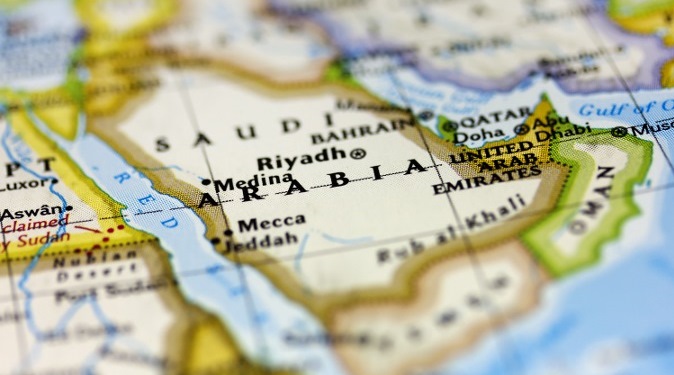A look at a current news item through the lens of different titles available on GVRL.
By Michelle Eickmeyer
This week, you get a bonus post. I had nearly finished a post on Martin Luther King Jr when news broke late last night of King Abdullah’s death. Its available, nearly finished, here. Stay tuned for what will surely be an upcoming post on Yemen.
The path to King-hood is not a straight line in Saudi Arabia. (It’s also a very bloody line, per this BBC timeline.) Following the death of his half-brother King Fahd in 2005, Abdullah rose to the throne. There he maintained, and tested, a friendship with the United States. Though politically, Saudi Arabia has long stood as our greatest ally in the Middle East, Abdullah has made no secrets of his interests in pursuing and advancing his own agenda.
The great test of Fahd’s reign — thus on Saudi Arabia itself, and Abdullah — was undoubtedly the battle of extremists and the growth of terror organizations. In 1994, Osama bin Laden, a Saudi by birth, was stripped of his nationality. Fifteen of the 19 September 11th hijackers were Saudi nationals. That same year, Fahd condemns terror and expands women’s rights.
For Abdullah, the continued battles of terror, increasing the political power of the country, continuing to advance the rights of women, and an embattled economy were priorities.
Here are five titles that look at King Adbullah’s death from different perspectives:
Worldmark Encyclopedia of Religious Practices, 2nd Ed. Gale, 2015
Islam’s two most holy locations, Mecca and Medina, are located within Saudi Arabia. As an Islamic state, the kingdom of Saudi Arabia “does not officially recognize the right of other faith communities to worship” and it is illegal to practice or promote another faith in public. Interestingly, this also applies to Shiite Muslims. What role does the King play in regard to religion? What is the Committee for the Propagation of Virtue and Prevention, and why they unique among other Islamic nations? What is Wahhabism and how did 9/11 change the world’s view of it and Saudi Arabia?
The War on Terror Encyclopedia: From the Rise of Al Qaeda to 9/11 and Beyond, 1st Ed. ABC-Clio, 2015
Whether born there or trained there, the “story” of many notorious terrorists involves a mention of Saudi Arabia. From the first dealings with international pirates through the 15 June 2014 capture of the mastermind of the Benghazi attack, readers will learn more about the events, people and politics of Al Qaeda in this new title.
Encyclopedia of Conflicts since World War II, 1st Ed. M.E.Sharpe, 2014
I will be the first to admit it – there are a lot of things going on which I do not know about. Add in the things I’ve missed, dismissed, and downright ignored, and that’s a lot of ‘things.’ From a conflict perspective, it is often difficult to keep a complete picture of uprisings, skirmishes, conflicts, battles and wars around the world. And that doesn’t mean you’ll understand them or really get why they are happening. Gain some insight into 32 conflicts involving Saudi Arabia in this title.
Ethics, Science, Technology and Engineering: A Global Resource, 2nd Ed. Macmillan Reference, 2014.
Oil. For most of us, Saudi Arabia is synonymous with oil. According to CNN, gas currently costs $.91(US) a gallon in Saudi Arabia. There is much speculation that the kingdom is currently not slowing production (which would raise gas prices to a more profitable level) in an effort to economically harm smaller oil producing nations. It’s a negotiated risk — they are willing to lose money because, fractionally, it’ll hurt you more than it’ll hurt them. Get a deeper look into the business of oil with this title.
Encyclopedia Of Global Studies, 1st Edition. Sage Publications, 2012.
The kingdom had made a fortune many times over, so why has the United Nations Human Rights Council condemned them for repressing their citizens since 2009? And why are human rights activists tried for creating organizations which create and promote equality? Take a look at the history of the United Nations and their missions for human rights around the world.
[alert-info]
 About the Author
About the Author
Michelle is an “anytime!” traveler and language enthusiast. She has degrees in talking from Central Michigan and Michigan State University. She is currently becoming a runner and used to play golf in high school.
[/alert-info]Air Jordan 1

